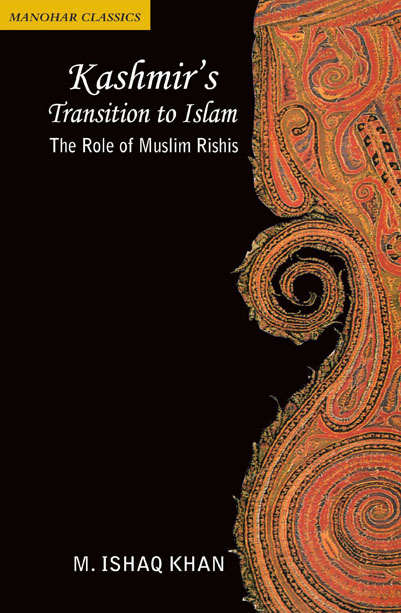Kashmir's Transition to Islam: The Role of Muslim Rishis
Mohammad Ishaq Khan (1946-2013) was Professor of History at the University of Kashmir. Earlier he was the Leverhulme Senior Fellow at the Oxford Centre for Islamic Studies and Dean Faculty of Social Sciences and Dean Academics at Kashmir University. He was the author of History of Srinagar, 1846-1947: A Study in Socio-Cultural Change; Perspectives on Kashmir: Historical Dimensions; Experiencing Islam and Biographical Dictionary of Sufism in South Asia in addition to numerous research articles published in learned journals of international repute. ... Read more Read less
The book breaks fresh ground in historical research. Based on a critical and empathic understanding of Sanskrit, Arabic, Persian and Kashmiri sources, it provides a critique of Orientalist scholarship against the background of an historical enquiry conducted into the processes of Islamization and its dynamics in relation to the role of Muslim Rishis (Kashmiri Sufis). Professor Ishaq Khan has brought together a number of perspectives – the historical, the sociological, and the religious. The crux of his argument is that Islam is not merely a matter of theological propositions, but also a historical realization: realizing the Oneness of Allah by total surrender, dedication, service and above all self-sacrifice for the good of humankind. The Rishi movement is an integral component of the process of Islamization that started in the picturesque Valley in the wake of the introduction of Sufi orders from Central Asia and Persia in the fourteenth century. The author particularly focuses on the paradox and tension that the Kashmiri Brahmanic society experienced as a result of the Rishi's advocacy of virtues such as self-imposed poverty, identification with the poor and the down-trodden, and above all opposition to the caste system. A significant feature of the book is a perceptive analysis of legends and miracles associated with Muslim Rishis. The author advocates the idea of looking at history from a fresh point of view, and argues in favour of studying the history of human civilization in its totality, involving an interaction between religion and society. The author has shown that the history of human civilization cannot be studied in watertight compartments of matter and faith. The present work is therefore worthy of attention and should be of interest to a wide range of readers, rather than merely to specialists.
... Read more Read less










